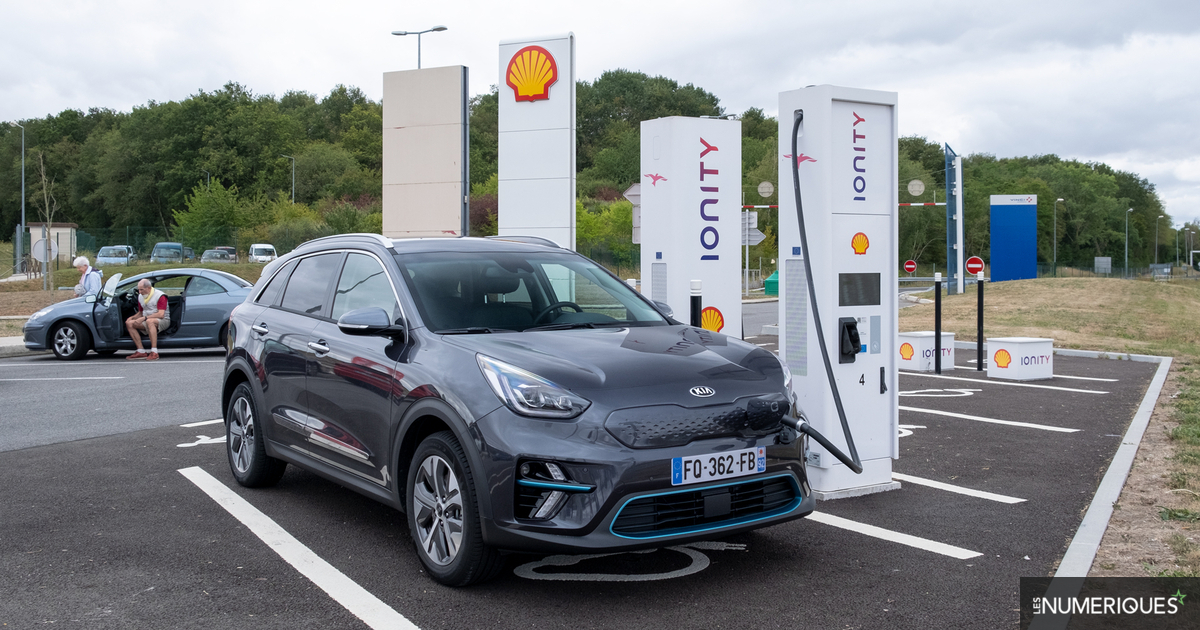With 521 stations and a total of 2,664 direct current fast charging stations in Europe, Ionity is an essential operator for electric car drivers, especially during the holiday period. The price of charging on Ionity’s 350 kW fast terminals – which will soon increase to a power of 400 kW – was however among the highest on the market.
From now on, and even as electricity prices continue to rise, Ionity will lower its prices to align with those charged by the competition. Thus, in France and Germany, the cost of recharging an electric or plug-in hybrid car has fallen by €0.10/kWh. While the rate was previously set at €0.69/kWh in France, it is now €0.59/kWh, the same as with competitor Fastned, for example. Germany is slightly more expensive, at €0.69/kWh (€0.79/kWh before this drop) and Norway is also seeing its prices drop, at NOK 6.99/kWh (NOK 8.40/kWh previously ).
In total, this price reduction concerns 60% of Ionity’s fast charging points in Europe. Customers of the Ionity Passport subscription will see charging prices drop from €0.49/kWh to €0.39/kWh in France, i.e. €0.20 below standard prices. The offer is still billed at €11.99/month, which means that it is enough to recharge 60 kWh of electricity per month to make it profitable.
It should be noted that some manufacturers who are members of the Ionity consortium sometimes offer their customers preferential rates on the operator’s terminals.
Electricity now advantageous on long journeys?
Charging an electric Renault Mégane E-Tech EV60 from 20% to 80%, allowing you to regain 270 km of WLTP range, thus cost €24.84 in France on an Ionity fast charging station without a special subscription before this price reduction, which which amounts to €0.092/km of WLTP range. From now on, it would cost only €21.24, or €0.079/km of WLTP autonomy regained.
By way of comparison, a Mégane petrol TCe 140 EDC FAP consumes 5.9 l according to the WLTP cycle and the Blue dCi 115 EDC diesel version does better with 4.6 l/100 km. At the current average prices for SP95-E10 and diesel (respectively €1.896/l and €1.835/l last Friday according to the Ministry for Ecological Transition), which have increased significantly, the gasoline Mégane is equivalent to €0.112/km of range and the diesel version at €0.084/km of WLTP range. However, the result of this calculation may vary depending on the engine chosen, the style of driving adopted or even any subscriptions to charging cards.
In this specific case, electric is therefore now better than petrol and diesel, not to mention that the prices charged by motorway service stations are generally significantly higher than the national average used for this calculation. However, the consumption of an electric car increases significantly at high speed, compared to mixed consumption, which is not the case for the majority of petrol and diesel models. Either way, it’s important to remember that the cost of running an electric car is unbeatable when charged at home, which accounts for the vast majority of charging for most drivers.
